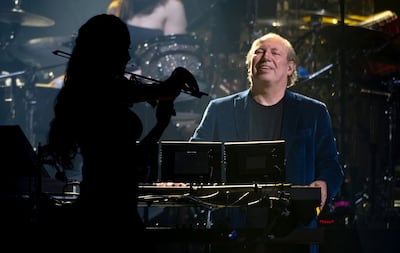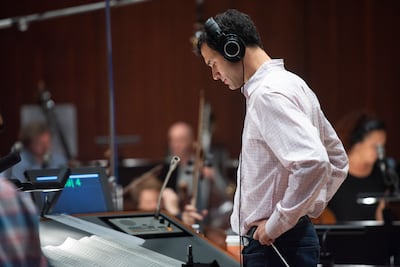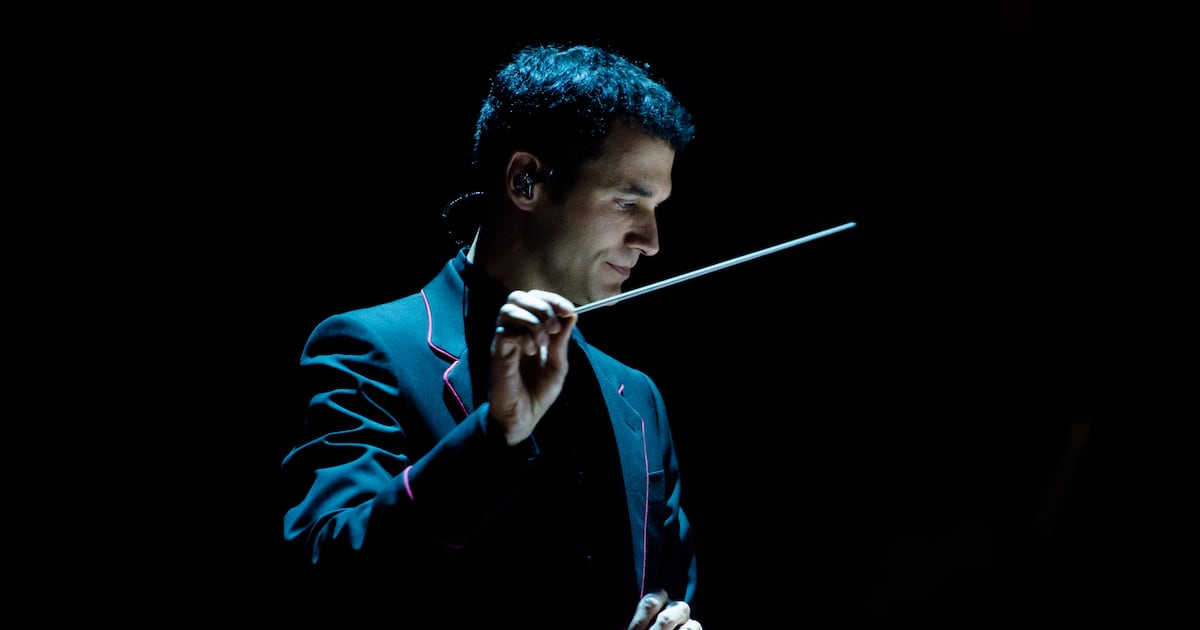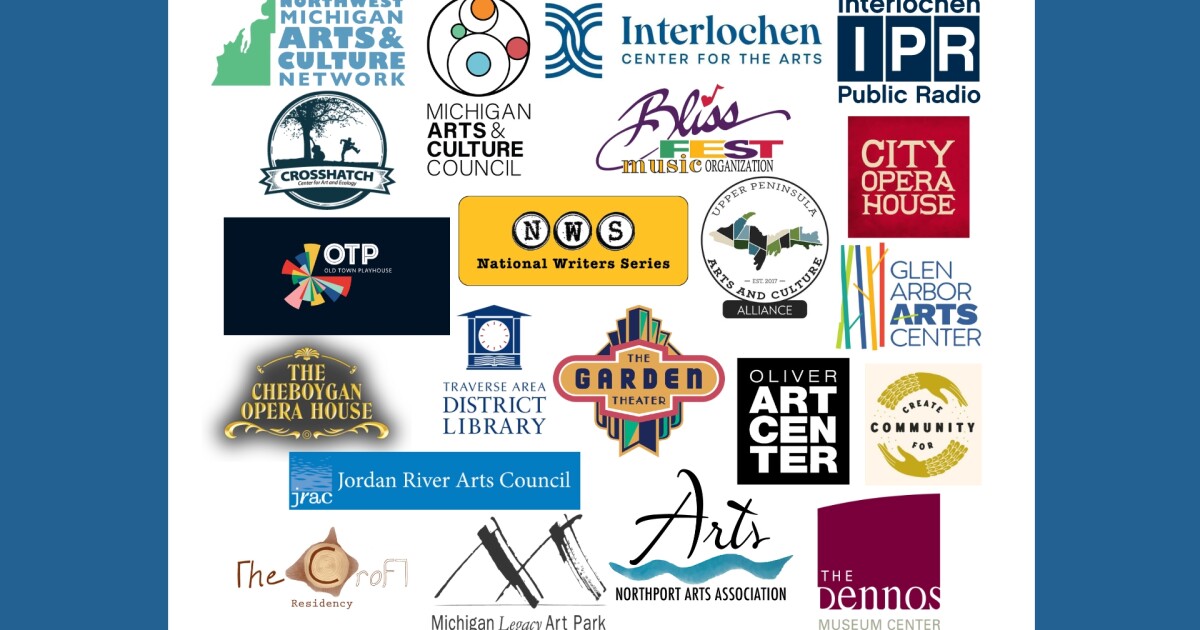At this point, it’s hard to imagine a journey back to Westeros without Ramin Djawadi’s music.
second season game of Thrones Prequel Dragon House Each episode still begins with Djawadi’s signature theme from the show’s predecessor.
Since then, the Iranian-German composer’s brilliantly unsettling score has continued to set the tone for the entire production, building on the TV series’ themes of honor, revenge and redemption.
As the Cold War intensified, the composer played a key role in heightening the necessary tension, creating memorable melodies, and working closely with showrunner Ryan Condal.
In an interview with Grammy Awards website, Givadi described how he would watch each episode Dragon House before adding the appropriate fractions.
“It’s called a positioning session. I sit down with the showrunners… and we watch the whole episode together. Then we decide where the music should start and where it should stop. And then we talk about those moments. What themes can we use? Mood What should it be?
“Sometimes we get into the details and sometimes we don’t. When the turning point comes, we have to figure out the right tools so they give me more inspiration and direction. Then I write all the music and create these digital demos, And play it for them. Then we’ll look at the pictures and the music together and see what works and what doesn’t. Do we need to tweak it more?
“Once we all agree on the music, I record it. It’s important to point out that this is a collaboration. I don’t just write whatever I want. The showrunners have a clear vision.
From the guidance of master Hans Zimmer to the rules followed when creating game of Thrones Soundtrack, here’s what you need to know about Djawadi.
1. He studied at the top music conservatory in the United States
Javadi was born in Germany to an Iranian father and a German mother. He graduated from the Berklee College of Music in the United States and studied guitar and film scoring.
“The music I write is perfect for a movie,” he said in an interview on the conservatory’s YouTube page.
“Because film scoring is such a broad genre of music, I think it’s important that everyone pursues the music they like rather than trying to imitate others.
“What people in the industry are looking for is to find something original. So, go for what you love the most, because that’s when you write your best music.
2. His mentor is Hans Zimmer

Djawadi got his start in the industry by getting a job as a studio crew member in Los Angeles with Remote Control Productions, a film scoring company run by Academy Award-winning German composer Hans Zimmer. Zimmer).
As part of the show, Djawadi assisted composer Klaus Badelt with additional music and arrangements for the 2003 blockbuster Pirates of the Caribbean: The Curse of the Black Pearl.
“I actually worked in the computer room, handling computers and samplers and so on.
“Then gradually I was allowed to work on some projects. My big break was the first one Pirates of the Caribbean movie, so I started arranging it,” he told Grammy Awards website.
“[Zimmer] He’s been an incredible mentor to me, not just musically, but I think more so in terms of how to convey meaning and how to organize all the volume of music that’s being written, and in addition to writing music, there’s also the business in many other ways”.
3. An instrument was banned during the creation of Game of Thrones
when he was struck game of Thrones Created by David Benioff and Dan Weiss, Djwadi was a hit with Hollywood, creating his own projects and assisting Zimmer on a series Popular movies including 2005 Batman Begins Year 2008 iron Man and cheat (2008).
After watching two unreleased dramas game of ThronesDjawadi signed up for the series and created a contemporary score based on guidelines laid out by Benioff and Weiss.
“One of the famous things we laughed at was they immediately said to me, ‘We don’t need any medieval flutes, because I know we have dragons, we have swords and so on, so there are no medieval flutes,'” the composer said in said in an interview on the Grammy Awards website.
“They said, ‘Look, you can use synthesizers,’ because there’s definitely a lot of synthesizers in the score.
“It was all very organic, but they wanted a modern feel. Then the cello came along and it was the leading instrument in the show, and we all thought it could be a great instrument.
4. He went on a world tour
success game of Thrones Not only did it lead to the separate release of the soundtracks for all eight seasons, but it also led to Djawadi embarking on his first and only concert tour.
for Game of Thrones Live Concert Experience, From 2017 to 2019, he conducted a North American and European stage tour with an 80-piece orchestra and choir, performing a total of 87 performances.
Each performance is divided into two parts, with the composer playing 34 works. game of Thrones The theme performed during the encore.
5. He can hear colors

Djawadi reportedly suffers from synesthesia, a perceptual disorder that allows him to see colors when playing notes.
“My wife actually found out about it,” he told entertainment weekly. “She always asks about my process and how I make music, so I just describe it to her.
“I saw it in a visual and all the colors came to me and it triggered notes and melodies and I didn’t know there was a term for it.”
6. He also fall out
Amazon’s fall out The series is undoubtedly one of the breakout hits of 2024, building on the long-standing success of the video game series of the same name to create a post-apocalyptic sci-fi series packed with excitement, humor, and emotion, not to mention its star, Wo Walton Goggins and Ella Purnell became television A-listers.
The show has both delighted old fans and won over legions of new ones, thanks in part to the approachable tone set by Djawadi’s catchy score.
The show is set in the distant future after nuclear war in the mid-20th century and has a retro-futuristic feel, which Djawadi hopes to reflect through his music.
“It’s a futuristic, post-apocalyptic setting, but the visuals are stuck in the ’50s. Actually, the songs in it are from that era, so there’s a lot of those songs, and then the soundtrack just plays into those moments,” he told us recently type.
Updated: June 30, 2024 4:16 pm




